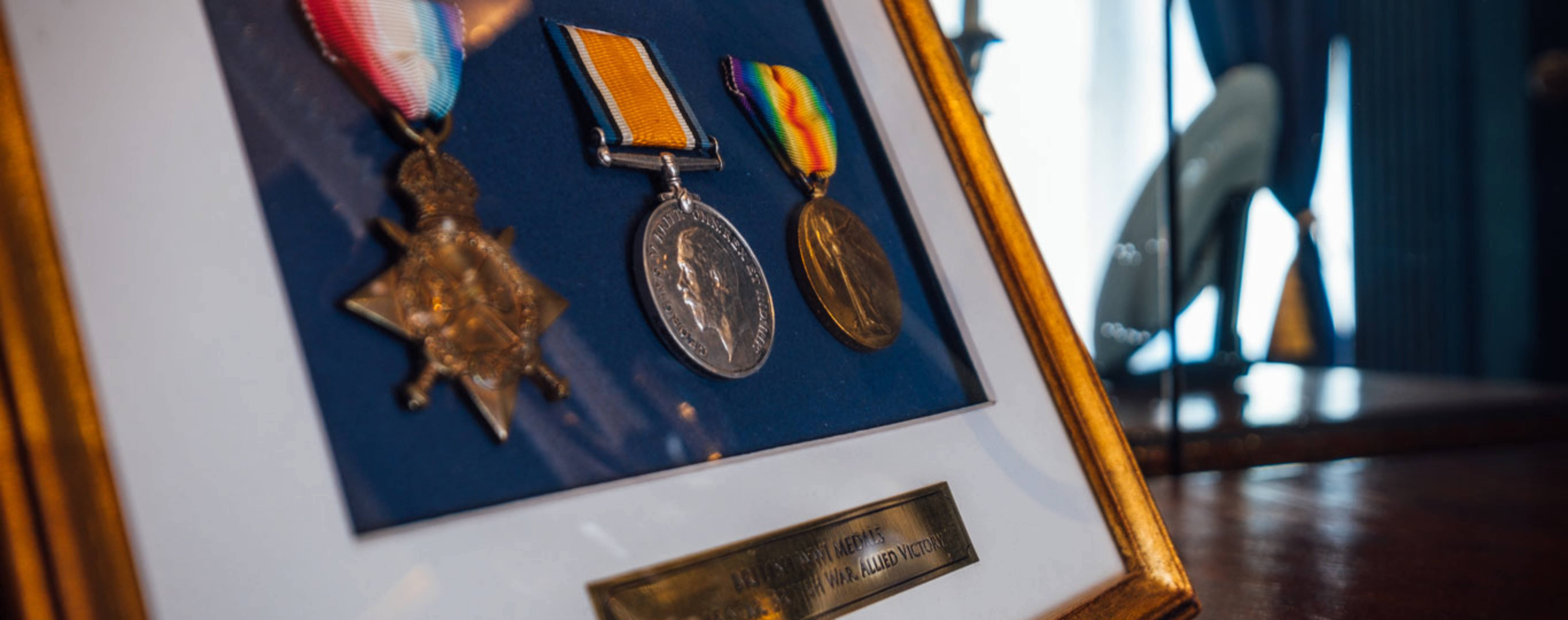Betalba House exhibits part of the naval history of the most successful fleet in the world of the XVIII and XIX centuries. The private collection of historical artifacts of the British Royal Navy covers the 1850s until the middle of the XX century. They can be admired in The Meeting Room and The Victory Room.
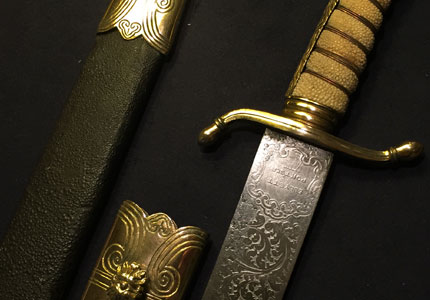
Midshipman's Dirk
British Royal Navy
Ellyett & Digance, Portsea, c.1856
Designed with the first official pattern, the 42 cm version dirk was made for Royal Navy officers. The same lion head pattern in its hilt is common to the swords of its time.
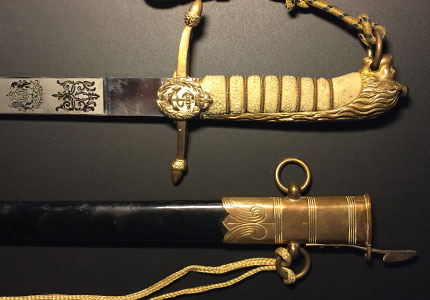
Officer's Dirk
British Royal Navy
1910-1936
The long version dirk of 61 cm bears the design last pattern. It belonged to Cmdr. Herbert Aubrey Walkinshaw, O.B.E, V.R.D, R.N.V.R., considered a naval hero for his loyalty and bravery.
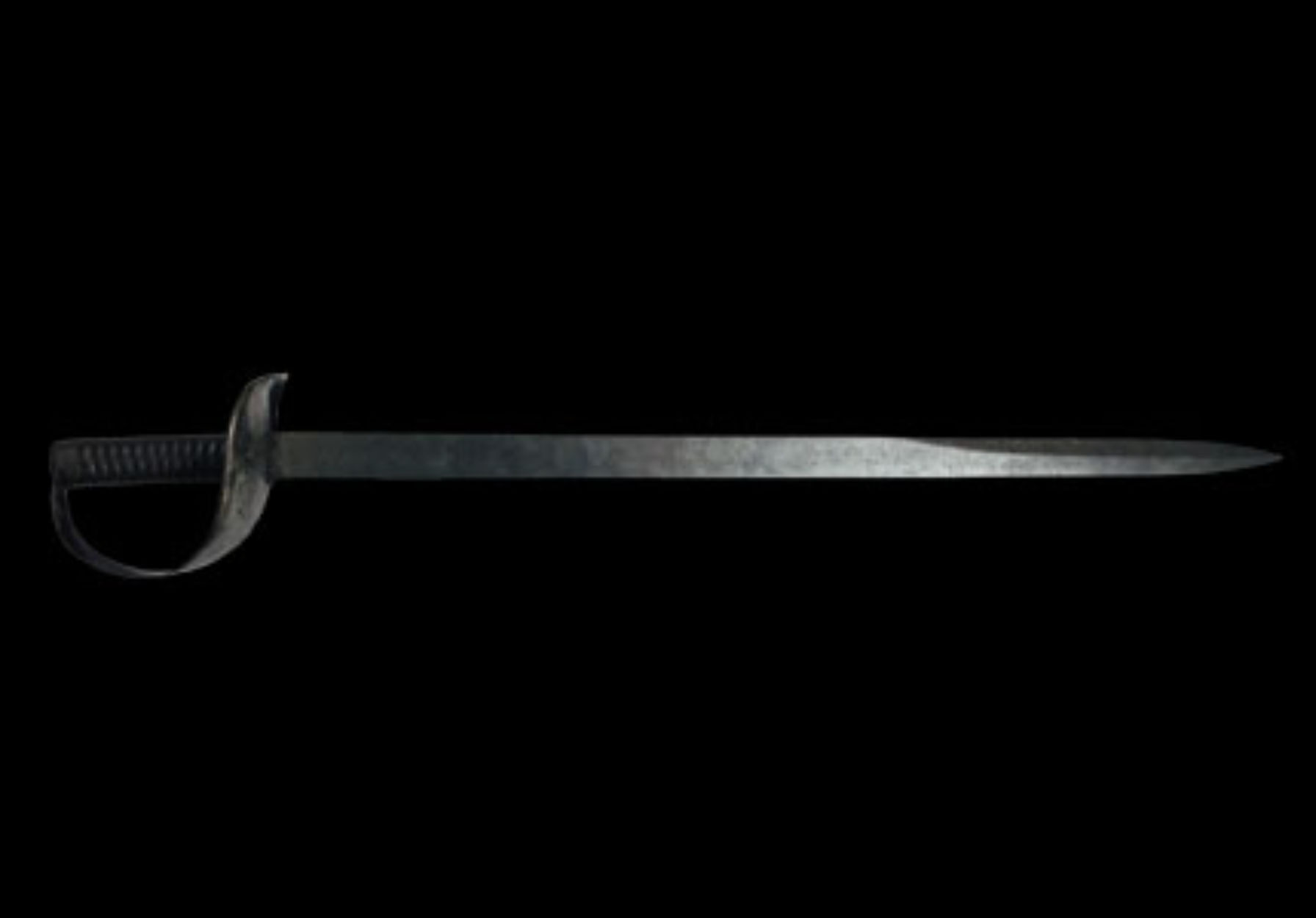
Boarding Cutlass
British Royal Navy
Wilkinson Sword Company, London, c.1890
This boarding cutlass bears the 1889 pattern. Made by Wilkinson, it has a 73 cm long blade, metal hilt and solid half-basket guard with ordnance markings.
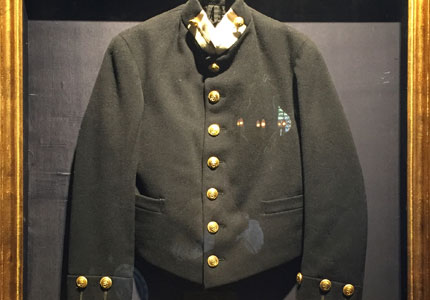
Midshipman's Jacket
British Royal Navy
M. Berman Ltd., London, c.1910
The uniform jacket belonged to a young midshipman. Made of natural wool and silk with brass buttons, it was part of the official uniform in the preceding period of the 1st World War.
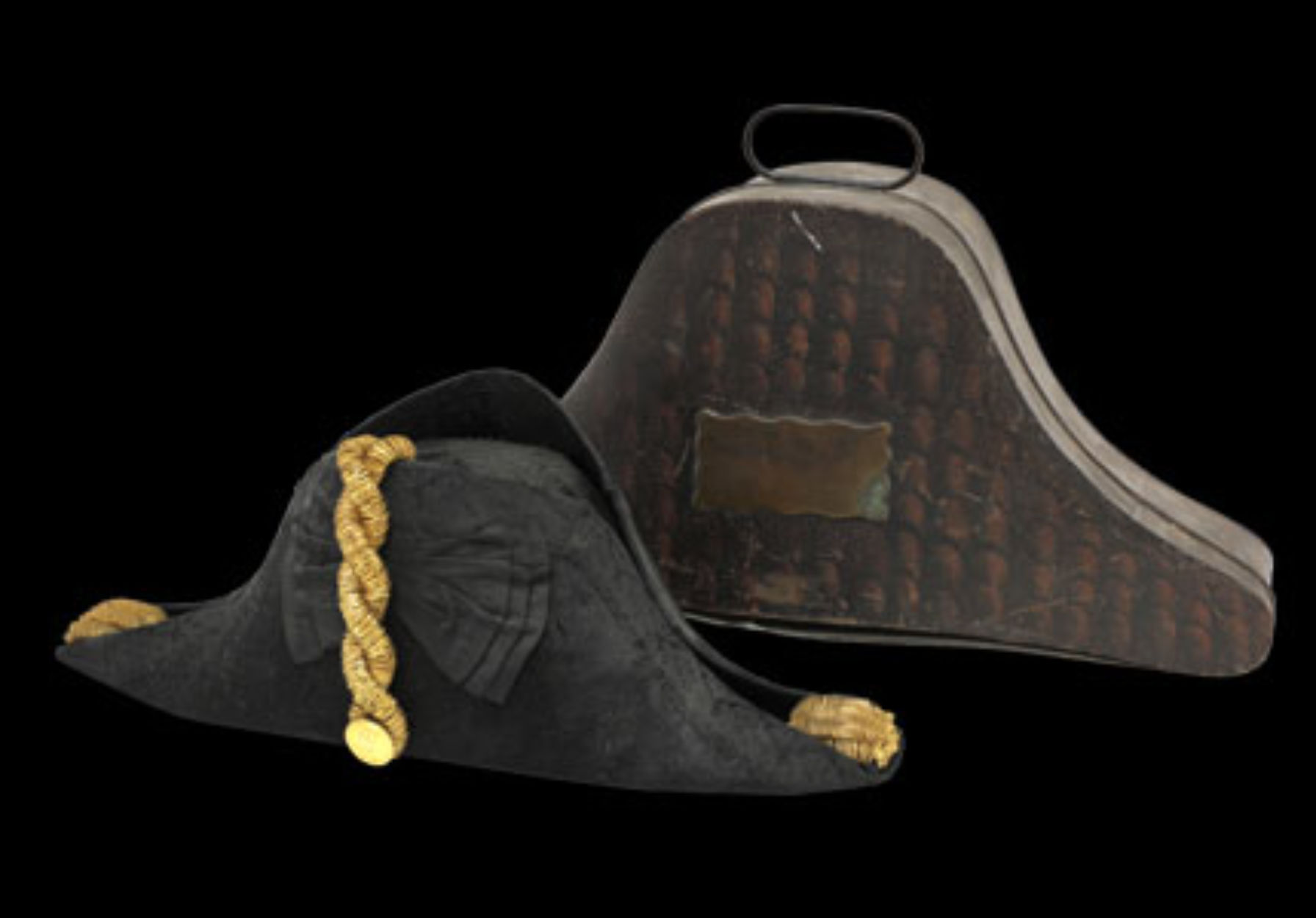
Lieutenant's Bicorn
British Royal Navy
Gieves & Son, London, c.1910
Cocked hat made by prestigious Gieves & Son (nowadays Gieves & Hawke) in beaver skin and silk. This peculiar hat was very popular in the 1790s until 1914.
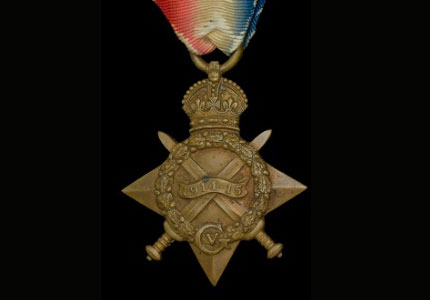
1914–15 Star Medal
British Royal Navy
1914-1915
Medal awarded to mechanic William John Harding. This medal was awarded to British officers who served in any theatre of war outside the UK in the 1st World War between 1914 and 1915.
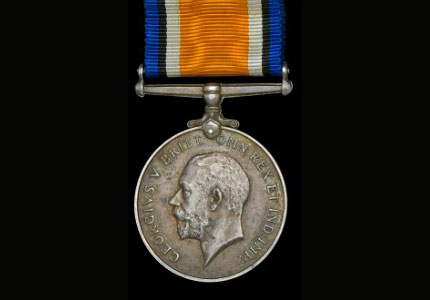
British War Medal
British Royal Navy
1914-1918
Medal awarded to William G. Armstrong who served aboard the HMS Dublin in 1917 and HMS Sentinel in 1918. This medal was awarded to officers who served in a war theatre or overseas between 1914 and 1918.
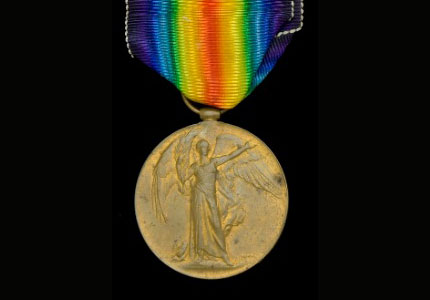
The Allied Victory Medal
British Royal Navy
1914-1919
Medal awarded to William G. Armstrong. This medal was awarded to officers who served in a war theatre, along with other awards like the “British War Medal.”

